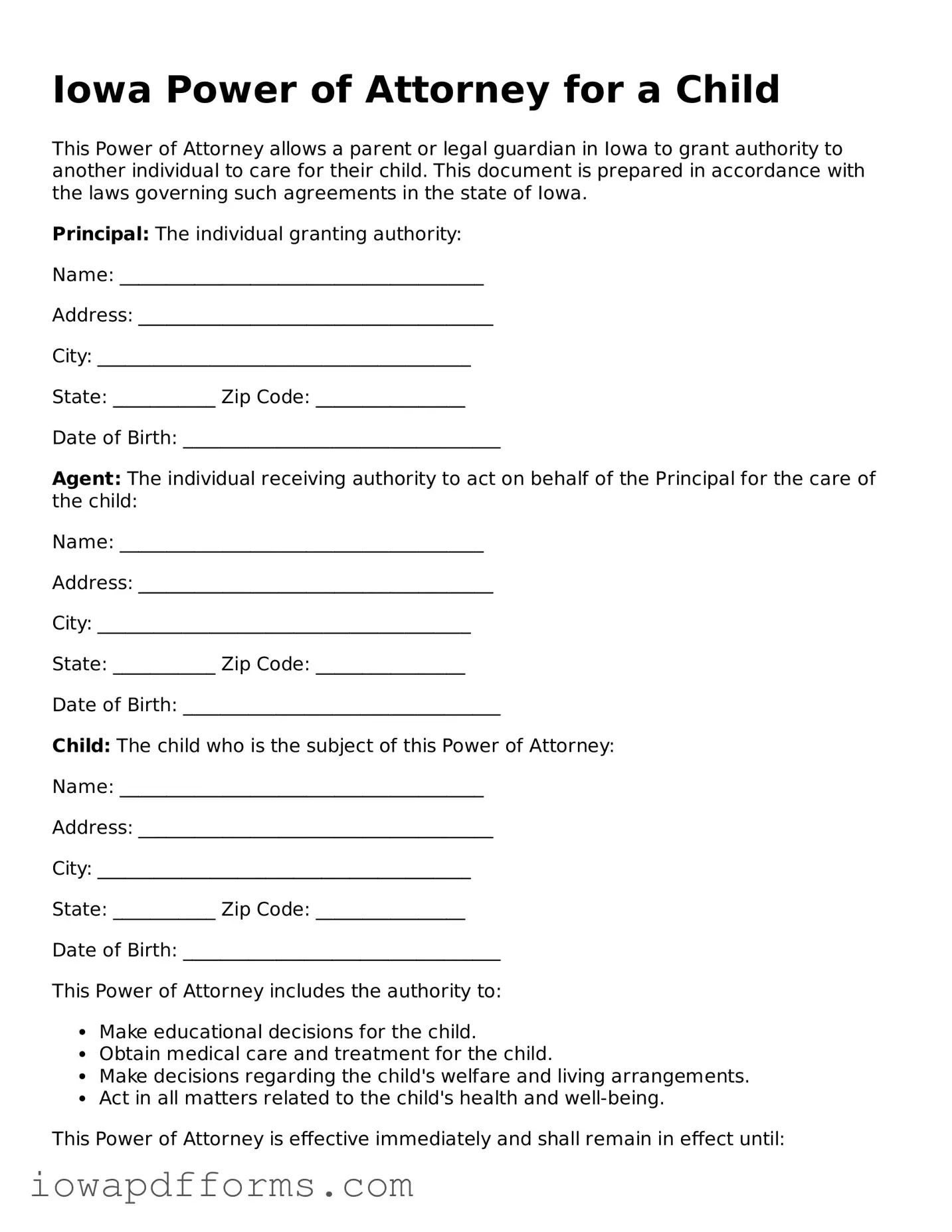Blank Power of Attorney for a Child Form for the State of Iowa
The Iowa Power of Attorney for a Child form is a legal document that allows a parent or guardian to grant another individual the authority to make decisions on behalf of their child. This form is particularly useful in situations where the parent or guardian is unable to care for the child temporarily. By establishing this power of attorney, parents can ensure that their child's needs are met in their absence.
Fill Out This Document Now

Blank Power of Attorney for a Child Form for the State of Iowa
Fill Out This Document Now

Fill Out This Document Now
or
Free Power of Attorney for a Child
Fast and easy form completion
Edit, save, download — complete Power of Attorney for a Child online today.